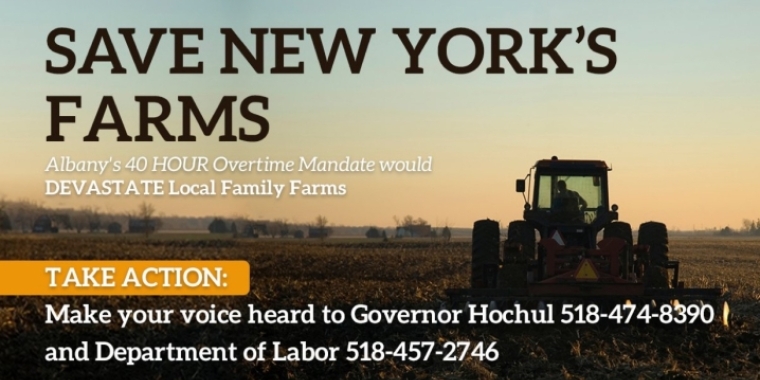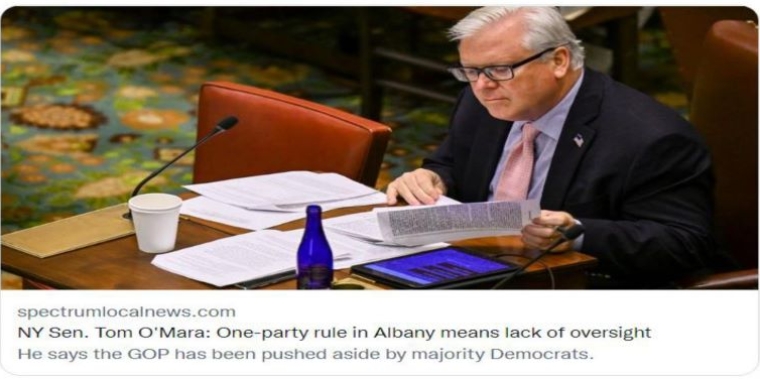
O’Mara joins Senate colleagues to urge rejection of lower overtime threshold for farm workers
September 22, 2022
-
ISSUE:
- farm economy

Elmira, N.Y., September 22—State Senator Tom O’Mara (R,C,I-Big Flats) today joined members of the Senate Republican Conference in a letter to New York State Department of Labor Commissioner Roberta Reardon urging her to reject the Farm Laborers Wage Board recommendation to lower the overtime threshold for New York State farms from 60 hours to 40 hours per week.
In their letter (see attached copy above) to Reardon, O’Mara and his colleagues wrote, in part, “While we hope that inflation returns to historical averages as quickly as possible, it is unclear if food prices will do so anytime soon due to lingering geopolitical forces affecting fertilizers and other agriculture petrochemicals prices. Doing anything that may increase the price of our food, or impact the stability of the food supply-chain (which we learned during COVID just how fragile it is), regardless of when the policies claim to start, would be extremely irresponsible.”
O’Mara has been a strong opponent of the actions of the Farm Wage Board since voting against the legislation creating it in 2019, when it was enacted by then-Governor Andrew Cuomo and the Democrat-led majorities in the Senate and Assembly.
During public hearings held by the Board, including earlier this year, hundreds of farmers took time from their busy days to give emotional comments expressing their concerns that increased labor costs would threaten their small family farms, which make up 96 percent of New York’s farms. Several economic development and business organizations came out in opposition to reducing the 60-hour overtime threshold, including the Grow NY Farms, New York Farm Bureau, Northeast Dairy Industry Association, the Business Council of New York State, the National Federation of Independent Businesses of New York (NFIB) and Upstate United, among others.
O’Mara testified before the Board in January to express his strong opposition to lowering the threshold and has continued to speak out against it since then. [View O’Mara’s January 20, 2022 testimony here: https://youtu.be/UZHEn8R5Ups]
The three-member Board, by a vote of 2-1, handed down its final recommendation during a virtual meeting on September 6. Board member David Fisher, President of the New York Farm Bureau, voted against it.
Governor Hochul, together with Reardon, now has 45 days to either approve or reject the board’s recommendation.
O’Mara has steadfastly urged the governor to put a stop to the misguided action.
O’Mara said, “The Wage Board has been moving in this direction from the start. Now Governor Hochul and Commissioner Reardon have the opportunity to finally reject it. They should listen to the thousands of farmers, farm workers, farm advocates, agricultural representatives, community leaders, and legislators, including me, in near-unanimous opposition. The message has been delivered from the industry’s top advocates, including the New York Farm Bureau, the Northeast Dairy Producers Association, Grow NY Farms, and numerous others. Local, federal, and state representatives have made it known that we fear the undermining of an industry and, equally important, a way of life that has defined the regions we represent. If left to stand, it will change the face of New York State agriculture as we have known it for generations. It will risk the future of high quality, local food production. It will spark the loss of more family farms and the livelihoods these farms support across the industry and throughout hundreds of local economies. Now is no time to risk regulating and mandating an even more uncertain future for family farmers, farm workers, farm communities, and New York’s agricultural industry overall.”



